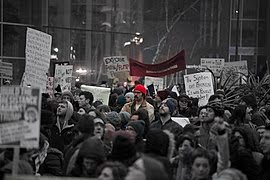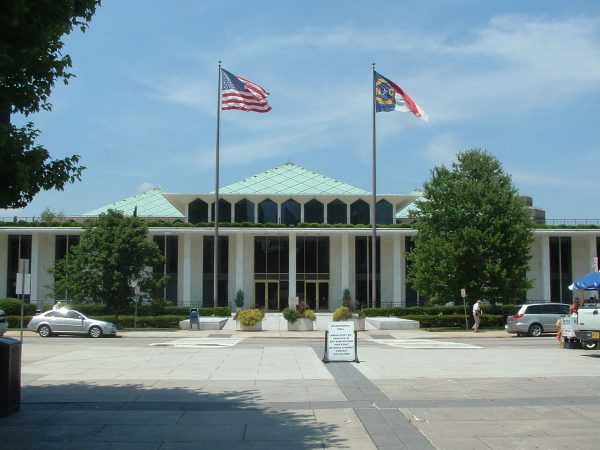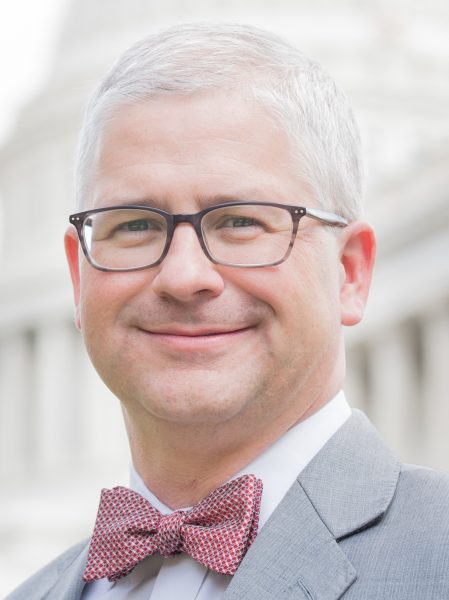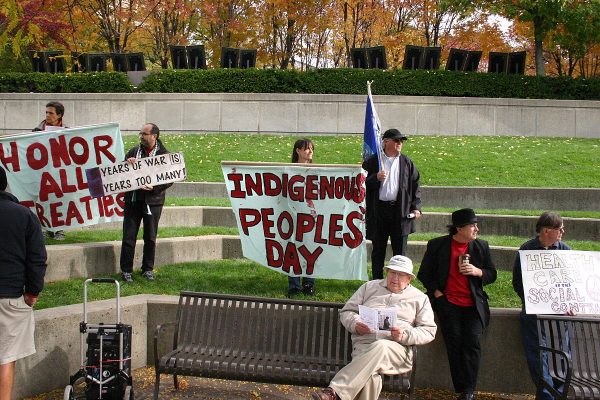Policy is a form of oppression for students
A few weeks ago, our community received an email from Todd Clark, vice president of student affairs and dean of students. The email was a confirmation of an “approved assembly” for March 14 on the quad of the College. Students wanted to pay respects to the victims of the Stoneman Douglas High School shooting in Florida that happened last month.
The assembly started at 10 a.m. and students gathered for a 17-minute moment of silence. But when I asked a friend of mine who attended the event how it went, she replied with, “I’m not sure.” And the reason is clear, this was supposed to be a protest, not just a moment of silence.
The new Peaceful Assembly policy can be found in the 2017-2018 Student Handbook under the College Policies section, on page 40. In the document, the College states that students are allowed as members of the community to “enjoy freedom of speech, peaceful assembly and right of petition,” but “as members of the academic community, they are responsible to obligations that come to them by virtue of this membership.”
The next few pages explain what students have to do to go through the process of “requesting” to gather for a “peaceful assembly” of any sort. Madeline Edwards wrote on this subject last week, and I wanted to provide more context for the policy and the implications this addition to the Student Handbook.
As I went through this document, I felt uneasy. This policy was born after an intense protest that happened last year on March 1. A trans student of color was allegedly sexually assaulted and the community was not pleased with the way public safety handled the situation.
The day after the incident, students, faculty and staff gathered in front of Founders Hall during community time to complain about it. Jane Fernandes, president of the College, and William Anderson, director of Public Safety, were both present and responded to students’ questions right then and there.
However, a few students did not agree with some of the solutions the College was given and decided to show their indignation. The seven core values flags were torn down and replaced later that week with signs made by the community that said, “Black trans lives matter.”
The Peaceful Policy was created after that month, which also caused resentment from the student body. Nothing was changed after that, and we did not come to see any other protests for the remainder of that year.
When I first heard of this new policy, I believed it would be beneficial in the sense that the administration would be aware of students mobilizing to help a cause. I never knew, however, that this would most likely become a form of oppression.
On the same day that Guilford students were holding the moment of silence, other colleges and universities around the country were actually protesting what happened in Florida and asked for better regulations concerning gun laws. I saw pictures and videos all over social media from dear friends who actually had the right to create signs, make noise and ask for change.
I do not believe, in any way, that a moment of silence should not happen. It is part of our Quaker tradition and should be considered for events like these. But it should also be a part of a peaceful demonstration, and not the whole of it.
During the almost four years that I have been in this College, the protest that happened last year was the only one that did not go well. And to me, this policy feels more like a punishment to future students than a good solution.
In the student handbook, the violations include excessive noise, unauthorized entry into a private area, restricting other members of the community to perform their personal duties, failure to disperse when a space is closed and vandalism.
Again, with the exception of what happened last year, all of the other protests I have been a part of have also complied to the violations above. Students always do their walkouts during community time on Wednesdays, they are loud, but they always stay in front of Founders Hall, which is far enough from the rest of the campus that they never interrupted a class or meeting in other buildings. And I have never seen anyone who was prevented from moving around campus because of these protests.
So to me, this new policy is nothing but a waste of our time.
Because in times like these, being silent is the last thing we should do. We need to make noise. We need to make sure that our government hears our plea. How are we going to force Congress or the president of a nation to change rules that affect an entire country if we just keep ourselves quiet?
I understand Guilford is trying to keep things under control, but this is not working well. As a student, I feel denied the access to freedom of speech that is part of the new policy. As someone who saw a family member being trapped at Stoneman Douglas High School without knowing whether they would come out alive, I feel like I am not allowed to create change.
Maybe Guilford can still maintain its process of “requesting” a time for a peaceful protest, but it should definitely give its students the chance to voice their opinions and sentiments.
After all, what the world seems to be lacking at the moment is open communication.











